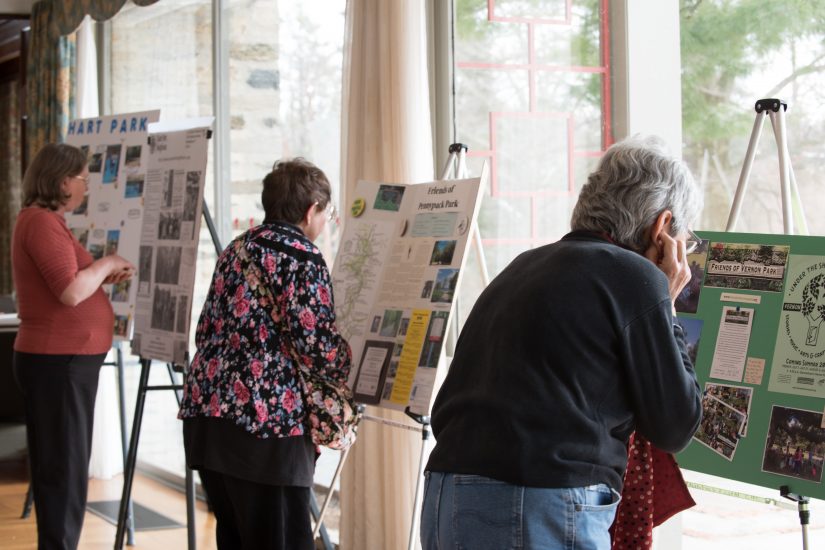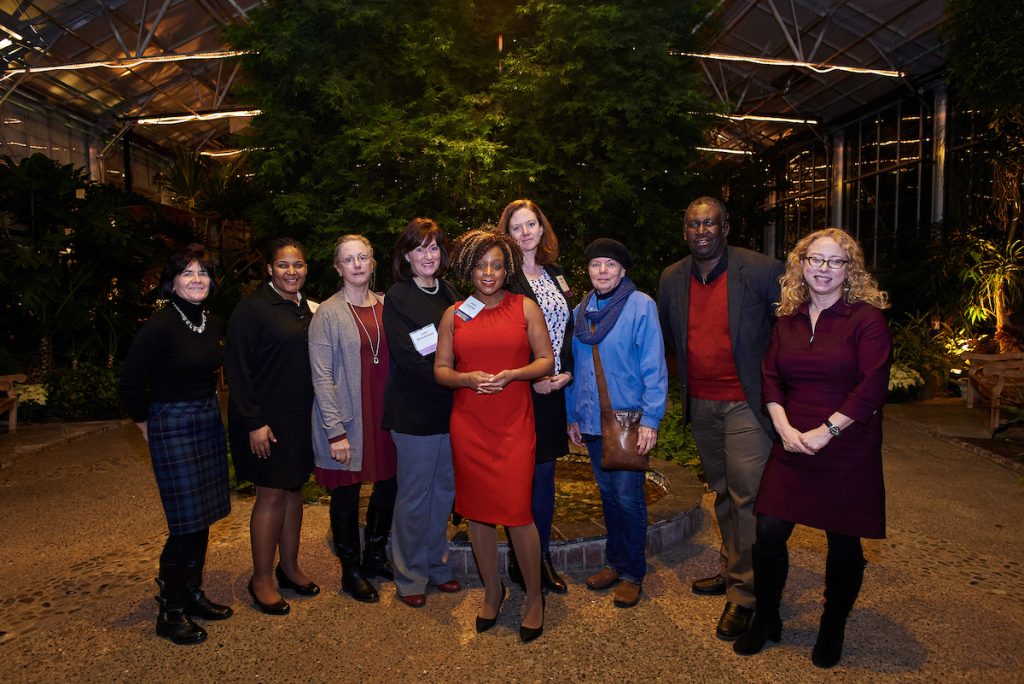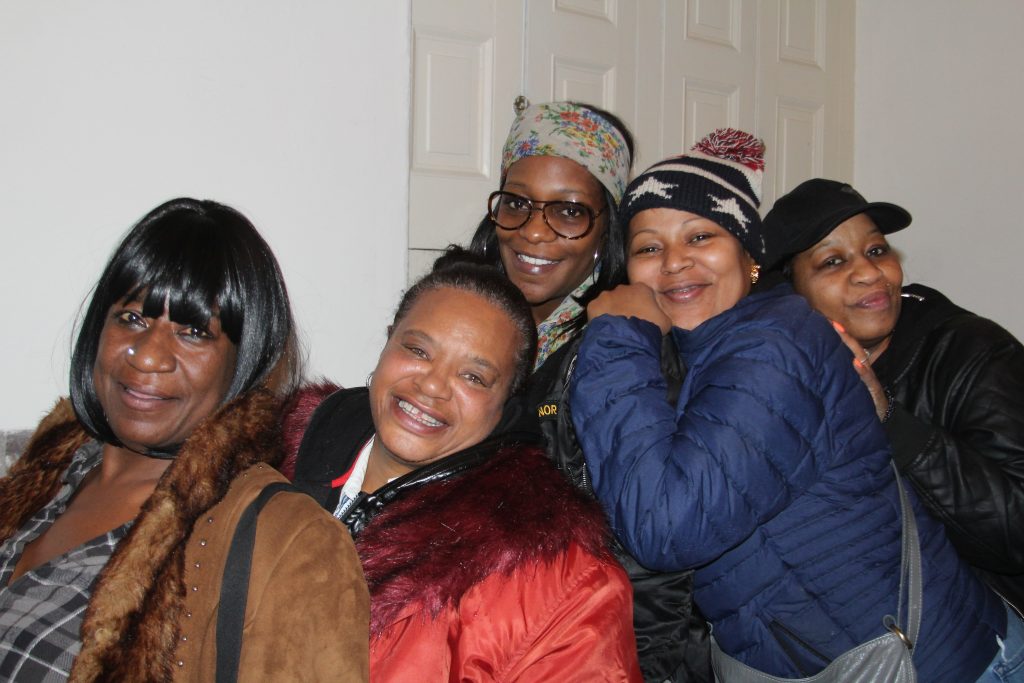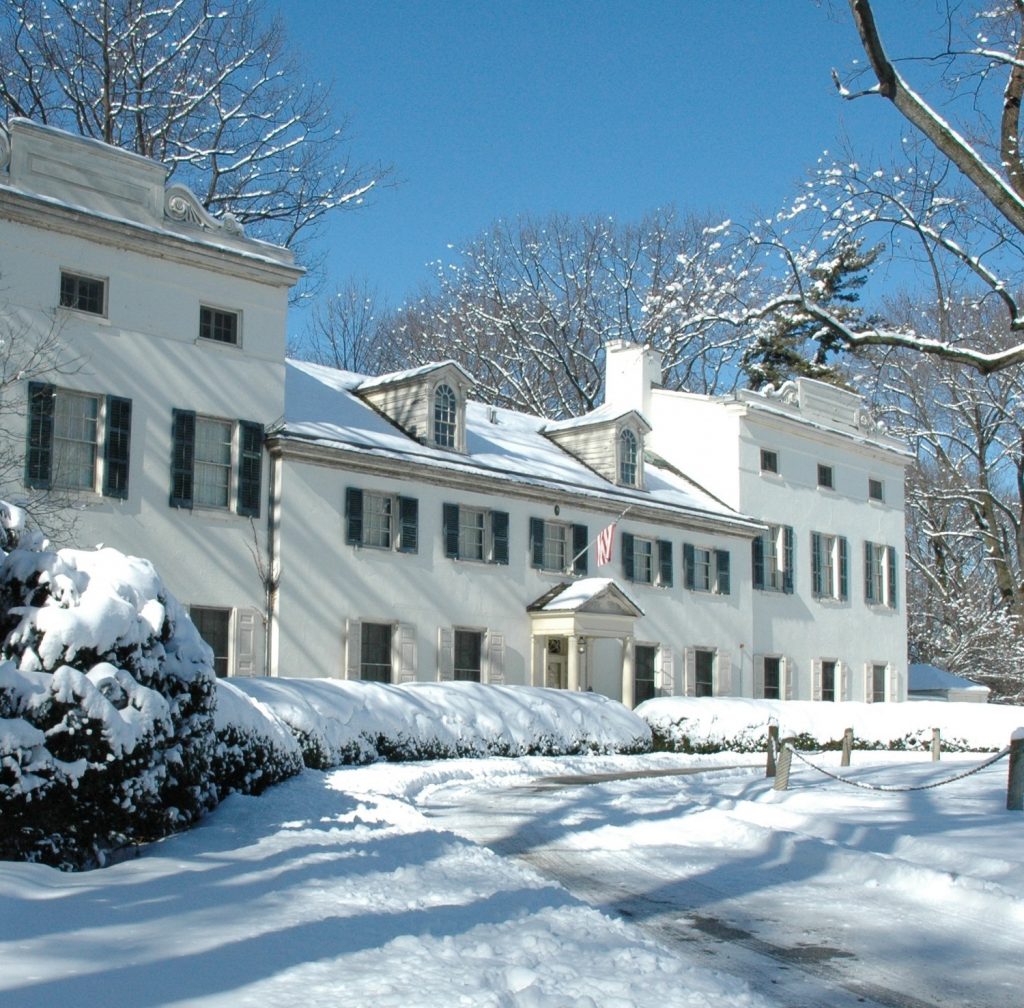Nearly 80 Park Friends joined us on Saturday, March 10 for the annual Park Friends Network Conference, which took place at the beautiful Chestnut Hill College-Sugarloaf Campus this year. Like in many years past, members of Fairmount Park Conservancy and Philadelphia Parks & Recreation’s Stewardship Team organized this special event to bring together Park Friends Groups from across Philadelphia to network and learn more about how to be the best park friends they can be.
Philadelphia’s Park Friends Network includes more than 115 neighborhood-based volunteer groups who help to steward Philadelphia’s parks and make them vibrant, inviting, and active public spaces.
PPR Commissioner Kathryn Ott Lovell and the Conservancy’s Executive Director Jamie Gauthier kicked off the event, highlighting the vital roles that Park Friends play in the city’s park system. “Parks are the places where people come together and make community,” said Gauthier. “This can be hard work to do.”
The Park Friends then broke out into four moderated discussions, where they learned about pathways to participation in Park Friends Groups, budgeting and financial management, succession planning and leadership structure, and how to deal with homelessness in parks. Here are 10 important tips and lessons our Park Friends learned from the conference!
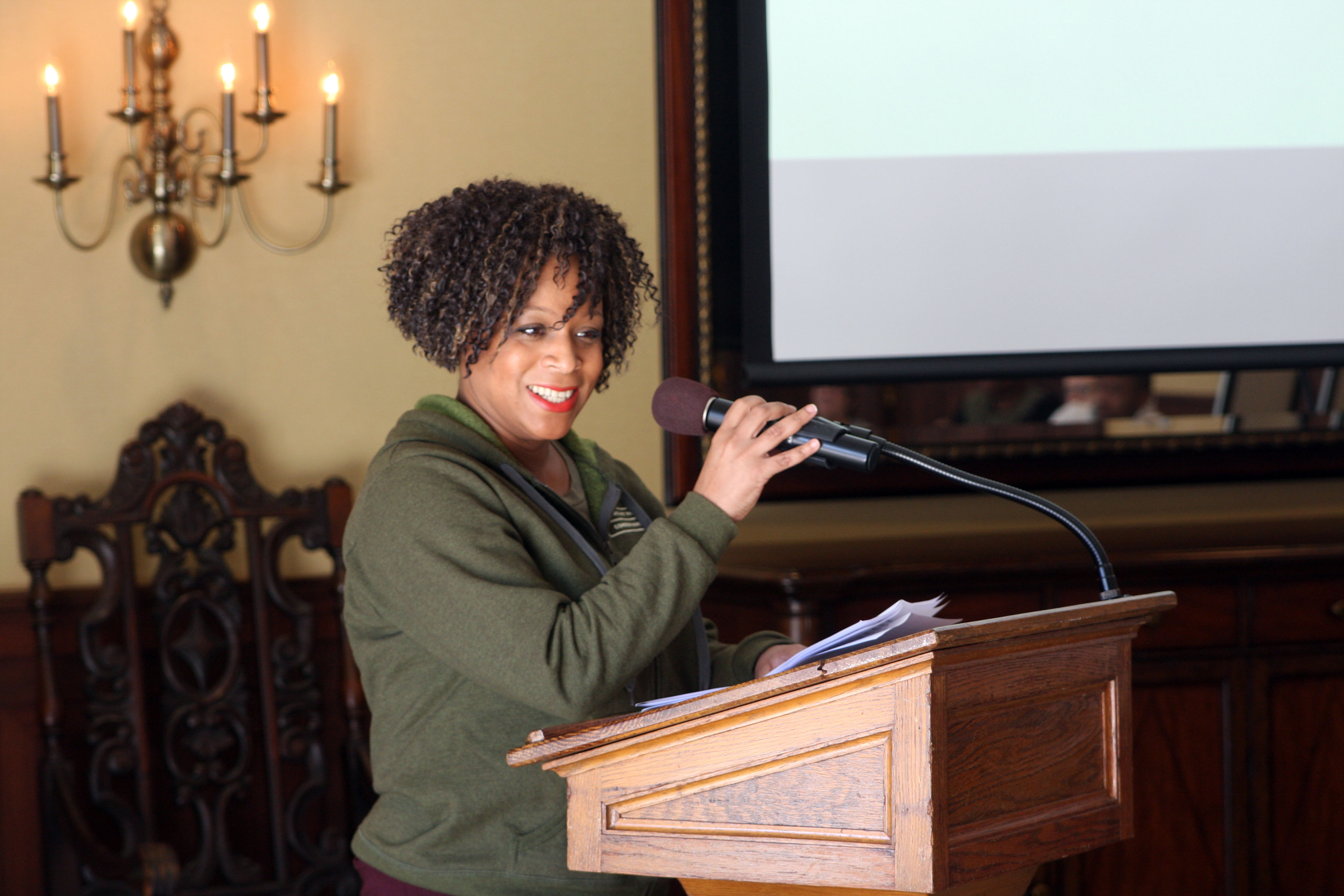
The Conservancy’s Executive Director Jamie Gauthier gave the keynote speech at the 2018 Park Friends Network Conference. Photo by Melissa Romero
How to increase pathways to participation
Be consistent
One of the simplest ways to encourage people to come out to community meetings is by keeping a regular schedule. Friends of Malcolm X Park in West Philadelphia host their public meetings on the same day and time each month. “This lets our community know where and when we’re meeting no matter what,” said Amanda Evans, the group’s Board Secretary. “They know exactly when they can come by and pull up a chair.”
Create diverse programming
Lisa Hanes, President of Friends of Clark Park, has found that offering a variety of ways to get involved with a neighborhood park broadens your group’s reach and entices more people from different backgrounds to get involved. “Diverse programming brings in different people, passions, and ideas,” said Hanes. Friends of Clark Park, for example, offers everything from a weekly farmer’s market to clean-ups to gardening opportunities.
Connect with your community
Communication is key! Find out what kind of communication method works best for your community: Friends of Clark Park, for example, has an active online presence and regularly posts updates and events to their website. Meanwhile, Friends of Malcolm X Park has found success in meeting with local businesses and keeping them up to date on what’s going on at the park. Businesses who sign up as a business-level member also receive a sticker that they can place in their storefronts, increasing Friends of Malcolm X Park’s visibility.
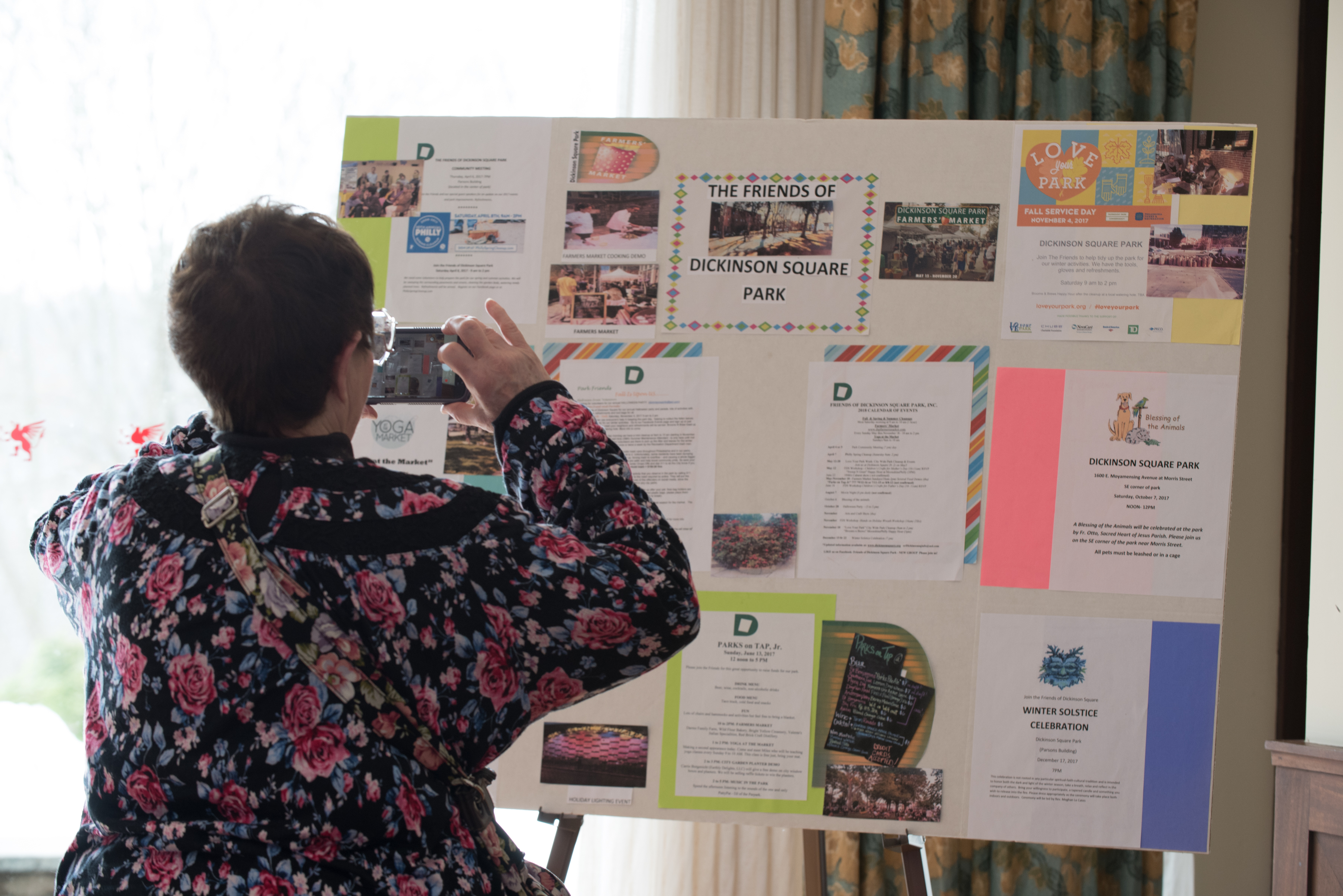
Photo by Philadelphia Parks & Recreation
The basics of budgeting and fundraising
Start with an abundance mentality
It may seem like your Park Friends group doesn’t have enough money to support your park. But there is a difference between money and resources, said Brittany Campese of Vision Driven Consulting at the workshop on budgeting and financing. Remember to access all of the resources available to you, all the while empowering people to be supporters and investors in your park.
When you are putting together a budget, find out what you need versus focusing on the dollar signs. For example, do you need to stock up on bulk ice for a special event? Visit your local grocery store and ask if they’d be willing to provide some as an in-kind contribution. Need some help to run the event? Don’t forget to account for volunteer hours.
Seek out diverse resource streams
Elaine Ulmer of Friends of Cianfrani Park in South Philly recommends applying for every grant available for your park, if you have the ability to do so. “Remember that your park is worth investing in,” said Ulmer, no matter the size. The Regional Foundation Center on the second floor of the Free Library’s Parkway Central branch is a good starting point; it provides free access to the Foundation Directory Online—the most comprehensive database of U.S. grantmakers and their grants. Staff is always available to lend a hand.
Let the community show their level of park love
If your Park Friends group is a 501(c)(3)-certified non-profit, you can offer a low-key membership fee at a rate that makes sense for your community. Maybe it’s $5, maybe it’s $30. Not only will these fees add to your budget, but it will show your community’s level of love for the park, said Hanes of Friends of Clark Park.
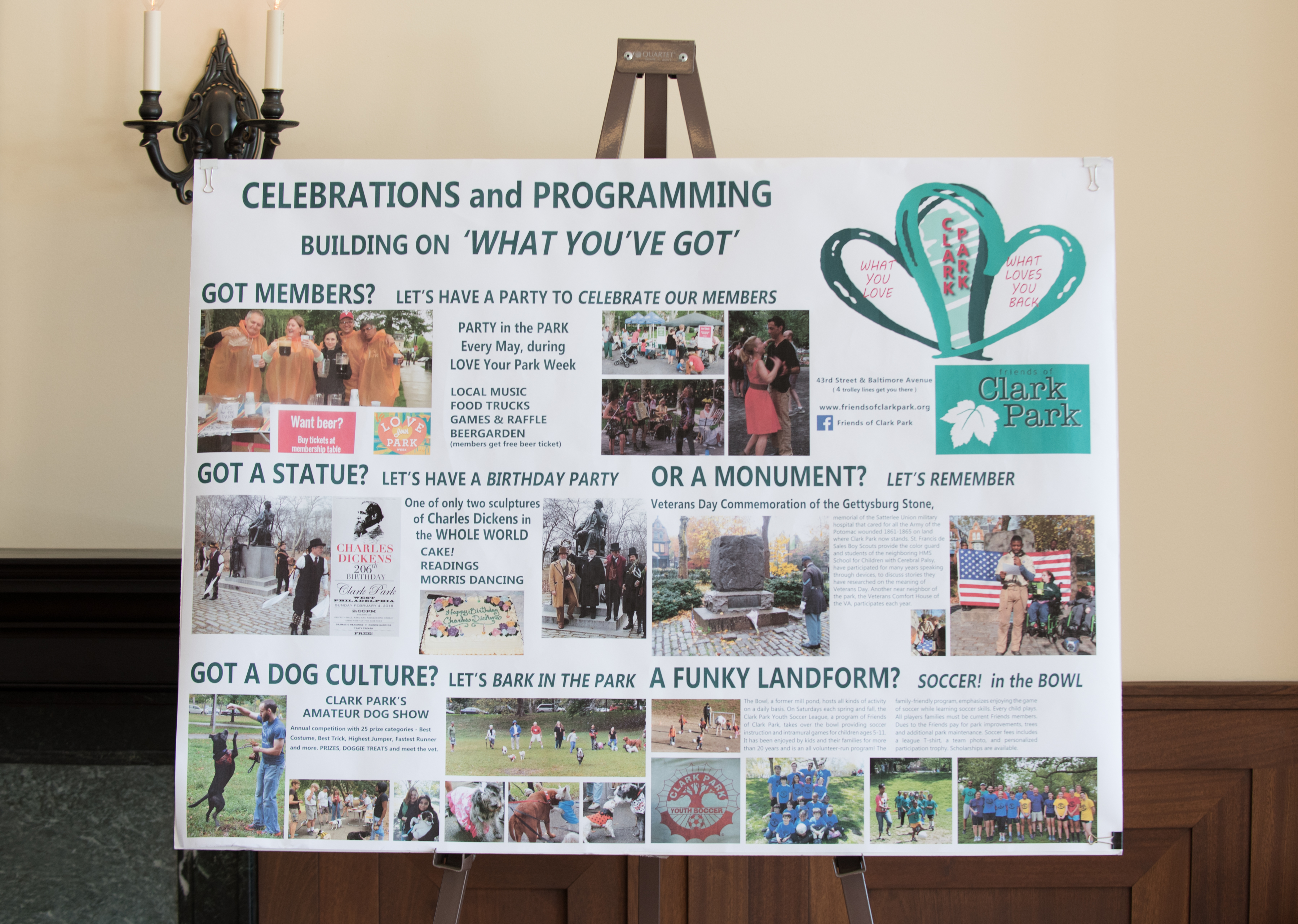
Park groups shared and learned from others via the conference’s first-ever poster board session. Photo by Philadelphia Parks & Recreation
How to pass the torch to the next group leaders
Start them off small
One common issue Park Friends Groups must wrestle with is passing the torch on to the next group of leaders. Donna Griffin of Community Capacity Builders suggests taking baby steps before immediately asking someone to make the commitment to join the board. “Use events to awaken passion” in volunteers, said Griffin. Love Your Park is a great jumping off point for newbies, since each year the event engages 5,000 volunteers in Philly’s neighborhood parks.
Value volunteers’ passions
Did you notice a volunteer at one of your park events who might be a good fit for your team? Engage him or her in a conversation, and talk about all the reasons you love your park. Then, frame your recruiting message to the volunteer’s own passions. Does she love gardening? Ask her to join the beautification committee. Does he have a knack for fundraising? Ask him to consider the membership committee. “People want to be a part of something successful, something that makes an impact on their individual lives, too,” said Griffin.
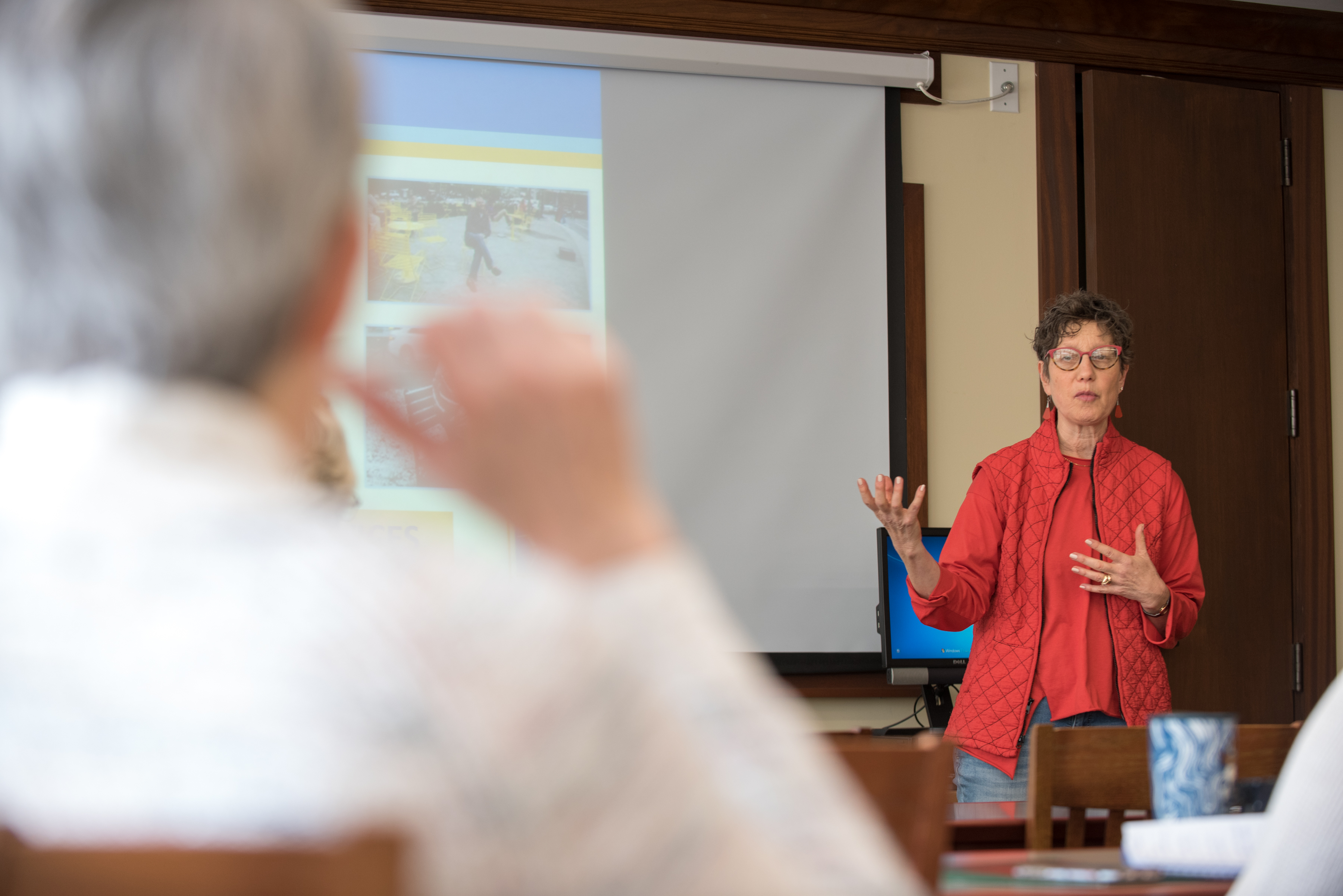
Liz Hersh, Director of Homeless Services, hosted a discussion on how to support the homeless in neighborhood parks. Photo by Philadelphia Parks & Recreation
How to support the homeless in your park
When in doubt, call 215-232-1984
There are nearly 5,700 people in Philadelphia currently experiencing homelessness, and many of those who are unsheltered seek refuge in Philly’s parks. Currently, the city has a “no camping” policy, but there is no ordinance that prevents people from sleeping on park benches. If you feel comfortable, you can talk to someone and see what kind of help they may need, said Liz Hersh, director of City’s Office of Homeless Services. But if you are unsure how to handle certain situations, call their Homeless Outreach phone number (215-232-1984) for help.
But if you see someone is in immediate danger to themselves or others, call 911.
Get trained in mental health first aid
Sometimes you may see someone in your park who is experiencing mental health or substance abuse problems and may be unsure what to do. In the moment, you can call 215-232-1984 or (911 for emergency situations). But you can also get trained in mental health first aid, said Hersh. You can have a volunteer instructor from the City of Philadelphia Department of Behavioral Health and Intellectual Disability Services host a private training session for your Park Friends group. Learn more about the training program here.
Thanks to Chestnut Hill College for hosting and to our generous sponsors, the Knight Foundation and Chubb Charitable Foundation, for making this event possible!
To learn more about Philadelphia’s unique Park Friends Network, read this Reimagining the Civic Commons article. Interested in joining or starting a Park Friends Group? Check out the list of active groups here.
